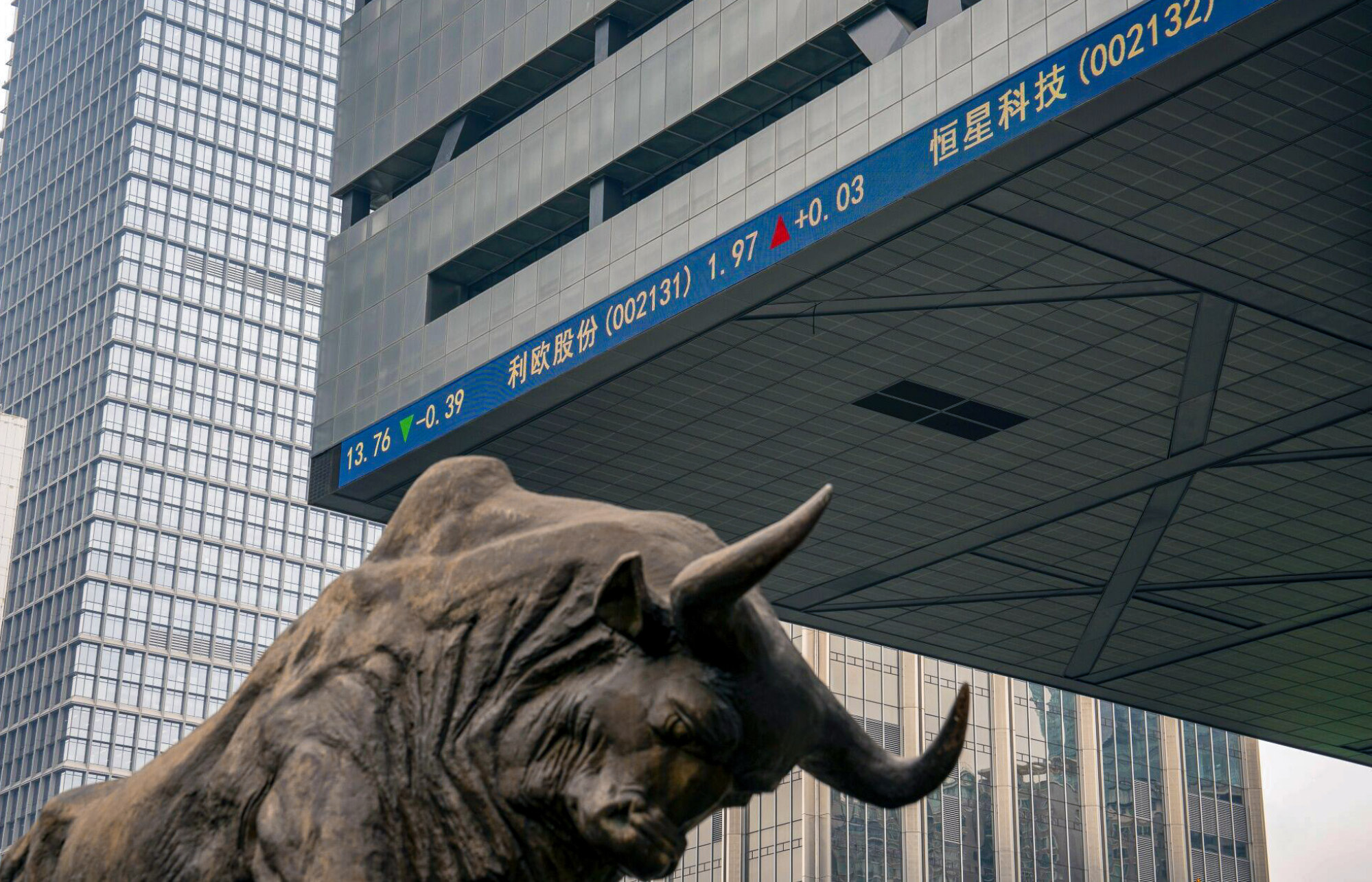A spectacular run in Chinese stocks has divided global investment banks into two camps, with Goldman Sachs, UBS Group and HSBC Holdings firmly in the bullish camp while Morgan Stanley and JPMorgan Chase’s private-banking unit remain cautious.
Goldman has raised its targets for both the MSCI China Index and the CSI 300 Index by at least 5 per cent this week to reflect diminished tail risks and earnings optimism. UBS and HSBC also expect continued gains, arguing that the rally will be underpinned by policy support and depressed valuations.
On the flip side, Morgan Stanley said that earnings growth for Chinese companies will be disappointing this year and next, and JPMorgan Private Bank is even more pessimistic, believing that the liquidity-driven rise has largely run its course amid a lack of fundamental economic improvement.

The MSCI China Index, the benchmark widely used by overseas investors, has risen 32 per cent from a January low, and the Hang Seng Index has climbed 28 per cent in the same span, both surpassing the 20 per cent gain defined as a bull market.
Historical data favours a continuing rise, according to Goldman. Examples over the past two decades show that there is a 60 per cent probability that stocks will extend gains after entering a bull market, fetching an average peak of 35 per cent in the following six months, it said.
“A resilient economy, strong manifestation of policy support across the macro, housing, and capital-market dimensions, together with suppressed starting points on valuations and investor positioning/sentiment, are key ingredients to the re-rating process,” analysts led by Kinger Lau at the investment bank wrote in a report issued on Monday.
Goldman raised its 12-month targets by 17 per cent to 70 for the MSCI China Index and by 5.1 per cent to 4,100 for the CSI 300 Index of yuan-traded stocks, saying that the driver for stocks will shift to earnings from valuation expansion.
The targets imply a gain from the current levels of 7.7 per cent for the MSCI gauge and 12 per cent for the CSI 300.
The valuation edge is one of multiple factors that will power ahead Chinese stocks trading in Hong Kong, which have price-to-earnings ratios below the five-year average even after the recent gains, according to HSBC.
“Share buy-backs can rise significantly more, interest rates can fall further, and much of the buying in Hong Kong has been from mainland China, which suggests global funds still have room to buy more,” said Herald van der Linde, a Hong Kong-based strategist at HSBC Holdings. “This all suggests that in the near term, Chinese equities could rally higher. It’s too early to leave the party.”
In the opposite camp, Morgan Stanley said it remained 14 per cent below the consensus earnings projections for the companies on the MSCI China Index due to China’s weak nominal economic growth and the prospect of a weakening yuan.
JPMorgan Private Bank called an end to the rebound and advised investors to sell Chinese stocks, particularly offshore shares, because of a lack of a meaningful policy shift that would restore investors’ confidence.
“Most of the offshore Chinese equity rally was driven by liquidity flows and asset reallocation from onshore investors, but these factors are unlikely to bring a meaningful earnings boost on the index level, nor a structural re-rating on multiples,” said Alex Wolf, the bank’s strategist. “The key catalyst for [global] investors tends to be fundamental factors around underlying nominal growth and corporate earnings. At the moment, that remains to be seen.”
Without a definite answer for the direction of the market, the best strategy is probably to wait and gauge the impact of last week’s sweeping package of rescue measures for the property market, according to UBS Global Wealth Management. Such a stabilisation would serve as a catalyst for a broad-based recovery in consumption and an uptick in stocks.
“We have raised our base case and upside targets for the MSCI China index, though for now this mostly reflects improving earnings forecasts for select internet names,” UBS Global said in a note. “We recommend investors shift their China equity exposure to a more balanced barbell that features both growth names and state-owned enterprises.”

